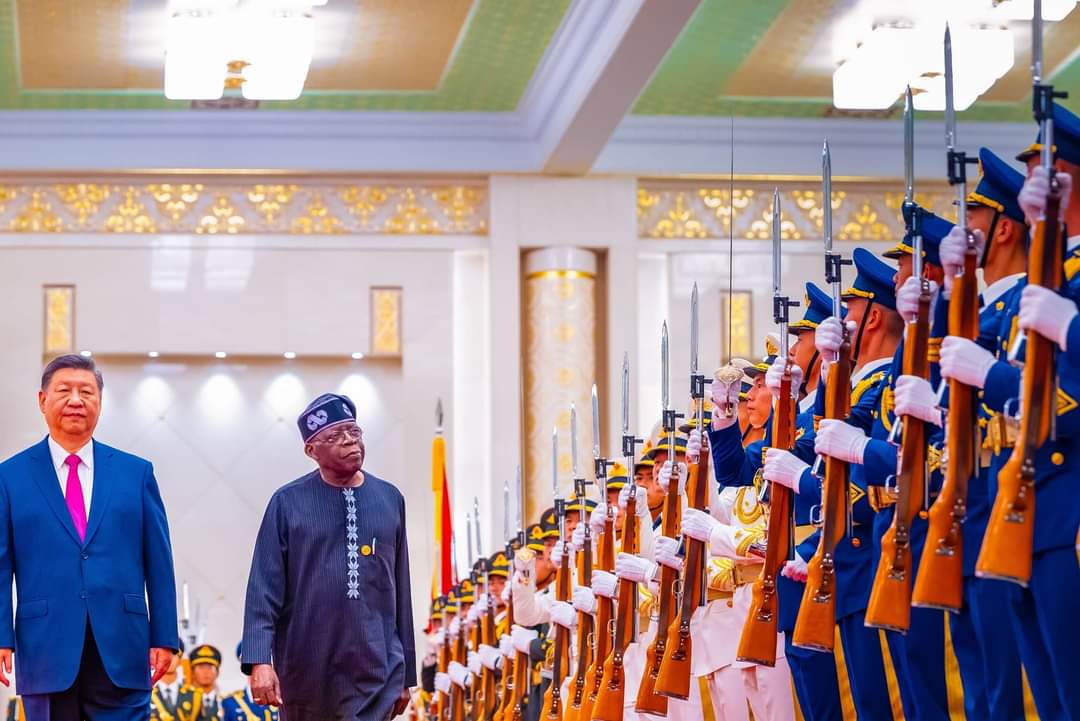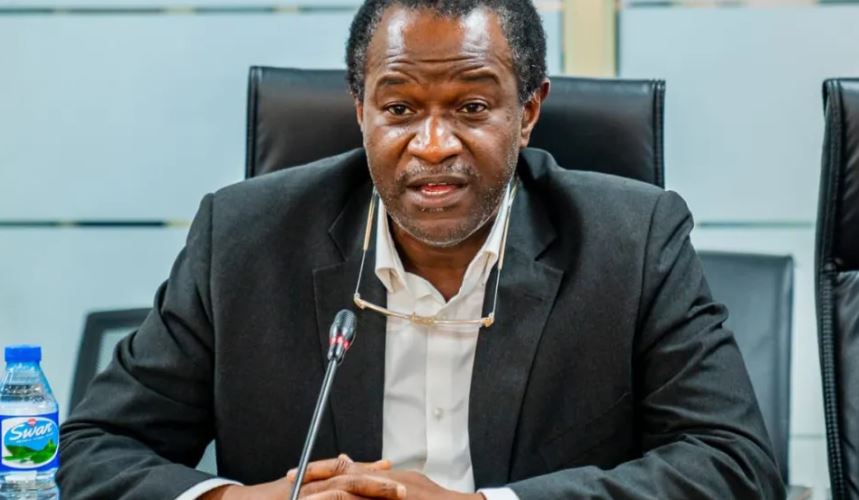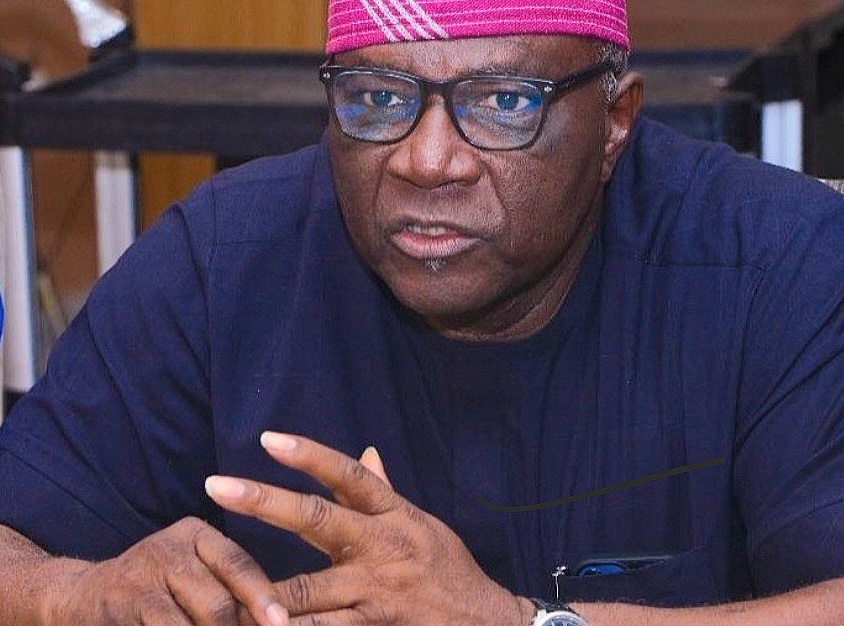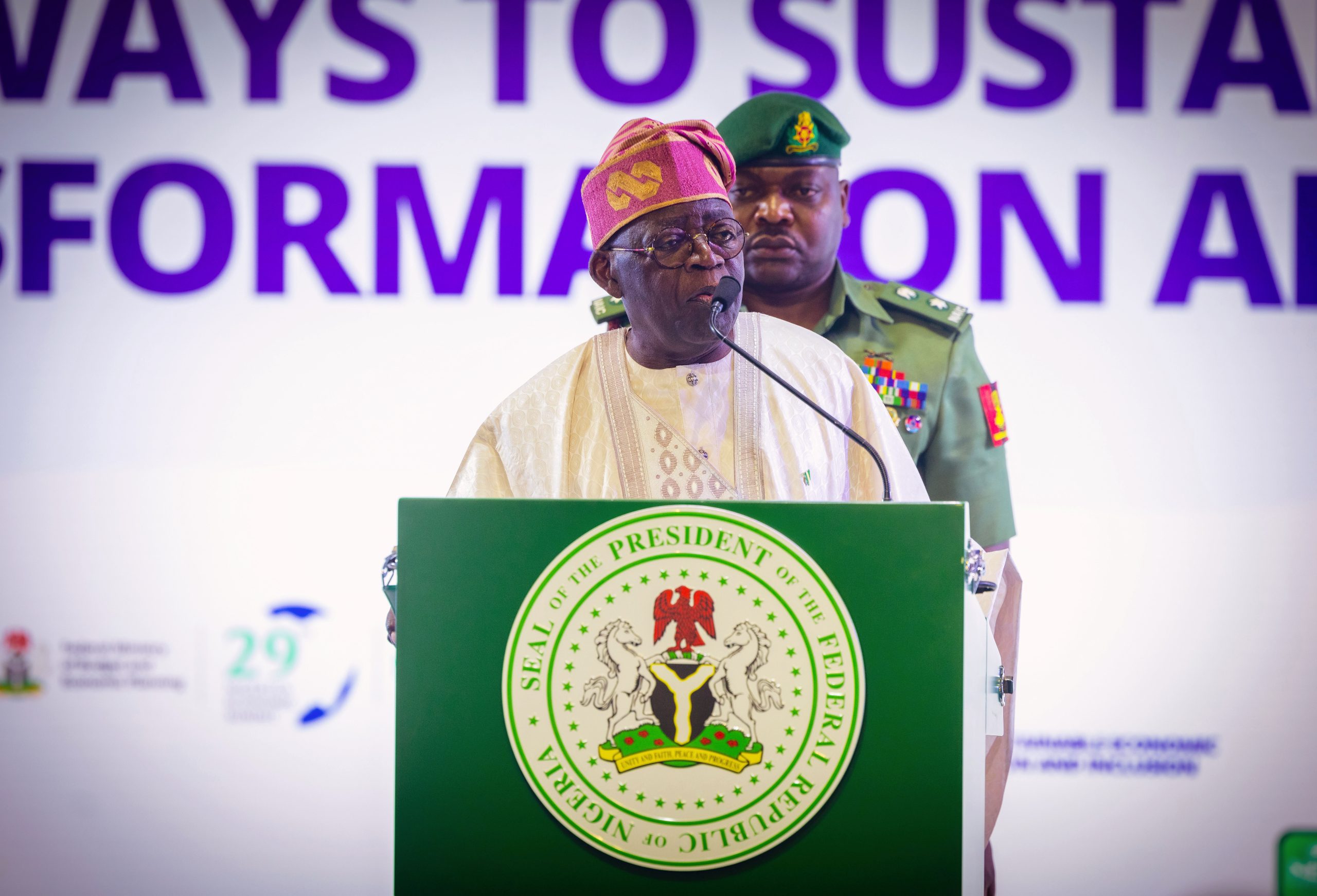Opinions
Nigeria: The Changing Governance Story
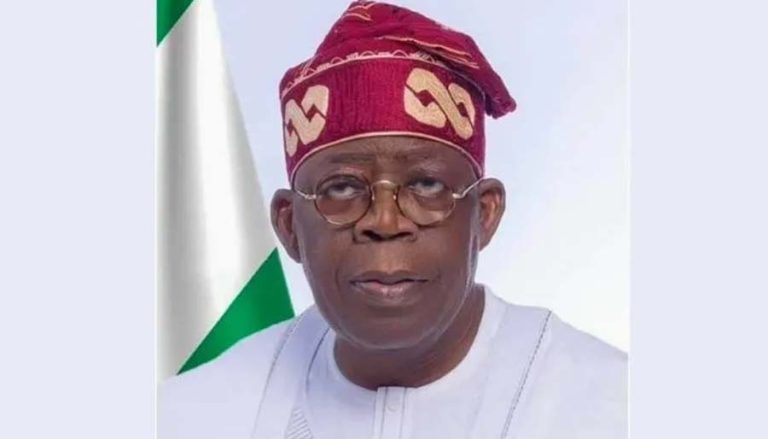
By Temitope Ajayi
Tracking many stories of remarkable progress currently taking place in Nigeria can be a challenging task. This is so because these important stories are lost to some who daily indulge in the cacophony of adverse reports. This negative news often dominates the headlines.
With a 24-hour news cycle that tends to focus mainly on distasteful narratives, several Nigerians have been made to accept the view that nothing good is happening in their country.
Those who rely on the mainstream media and social media as the only sources of news and information they consume are the worst hit by the cycle of misinformation that portrays our country as descending rapidly to the edge of the precipice. However, the reality is different: the country is making progress in leaps and bounds.
Late Swedish physician and Professor of International Health at Karolinska Institute, Hans Rosling, his son, Ola Rosling, and daughter-in-law, Anna Rosling, extensively dwell on this subject in “Factfulness: Ten Reasons We’re Wrong About the World – and Why Things Are Better Than You Think,” a book published in 2018. In the book, the authors demonstrate that most people are made to hold the wrong notion about the state of the world because the media project data, analyse trends and select stories to make people assume that things are getting worse around them. The authors assert that a majority of people view the world as poorer, less healthy, and a more dangerous place to live in than it actually is. In other words, many people believe they are living in a worse period in the history of mankind because of misinformation.
The same situation the Roslings describe in their book is at play in Nigeria, where individuals, interest groups, activists, analysts, self-serving politicians, and opposition elements constantly project and amplify negative stories.
It is as if we are in a race with those who can say the most horrible things about our country. Yet, we have an abundance of good stories to tell the world. We seem so numb to the good news that we are dismissive of breakthroughs and innovative trends. For instance, we downplay the significance of Dangote Petroleum Refinery and its possibilities to reflate the economy.
Many people forgot so soon that we had been importing petroleum products for over three decades because the state-owned refineries are moribund. Our national economy bled, and the country was in a fiscal cul-de-sac for those years as a result of subsidy payments on petroleum products.
Today, however, Nigeria is home to the largest single-train refinery in the world, with the capacity to process 650,000 barrels of crude per day. Cynics do not see this as a breakthrough.
Nigerians who are 60 years old and below started seeing modern rail infrastructure in 2016 when the All Progressives Congress-led administration of former President Muhammadu Buhari commissioned the standard gauge rail system, beginning with the Abuja-Kaduna route, later Lagos-Ibadan and then the Warri-Itakpe.
The national rail modernisation project is progressing with Kano-Katsina-Maradi and Kano-Kaduna standard gauge rail projects at different stages of completion. The contractor working on the rehabilitation of the Port Harcourt-Maiduguri narrow gauge recently announced the completion of the Port Harcourt-Aba section. While the Federal Government is rallying stakeholders to promote economic integration across the country, the Lagos State Government recently launched two metro rail lines -Blue and Red Rail lines – as part of the state’s elaborate master plan to build a modern and efficient megacity. Like Lagos State, there are visible signs of remarkable, quantifiable progress in several other states, including Kaduna, Kano, Akwa-Ibom, Rivers, Kebbi, Borno, Gombe, Oyo, Ekiti and Ogun, among others.
A few weeks ago, the President Bola Tinubu-led administration embarked on the construction of the 700 kilometres Lagos-Calabar Coastal Highway that will connect nine coastal states in another bold move to bolster economic growth further and open up the country to productive economic activities.
While it may be very easy for critics and other armchair analysts to ignore these developments and their significance to remaking Nigeria, there is no gainsaying that these projects and many more that are ongoing or about to be instituted across critical sectors are the core of President Tinubu’s Renewed Hope Agenda. Indeed, it is hard to process why the so-called critics and cynics can not see the Lagos-Calabar Highway project as a clear demonstration of the President’s commitment to harnessing the potential of our renascent Blue Economy.
Despite what is bandied by the most vociferous critics, a recent policy intervention on the state of the economy by the Independent Media and Policy Initiative (IMPI), a think-tank group, refuted the apocalyptic prognosis of the economic situation of the country by opposition figures, led by former Vice President Atiku Abubakar. The experts at IMPI made brilliant and well-thought-out submissions that repudiated the doomsday prophesy of critics.
Acting true to type, the People’s Democratic Party Presidential candidate in the last election and a few others, including business advocacy groups, derisively heightened tension with their pronouncements on the state of the economy. They framed the country under the leadership of President Tinubu as a hostile business environment, scoring the administration low on business enablement. While politicians, such as Atiku Abubakar, will naturally play politics with everything to score cheap points, some corporate advocacy groups often raise needless alarms, ostensibly to compel the government to do their bidding and usually in manners adverse to the interests of the people.
For example, while private sector advocacy groups, such as the Manufacturers Association of Nigeria (MAN), Lagos Chamber of Commerce and Industry (LCCI) and Nigerian Association of Chambers of Commerce, Industry, Mines and Agriculture (NACCIMA), regularly issue press statements on many businesses shutting their operations in Nigeria, such statements always fail to disclose that new businesses are also springing up in the country.
It is not only in Nigeria that businesses shut down operations. In any case, businesses wind up operations for many reasons that may have nothing to do with the operating environment.
It is a worldwide phenomenon shaped by a variety of factors. For instance, when the Manufacturers Association of Nigeria announced that 767 companies shut down in 2023, the Small Business advocacy group in the United Kingdom announced that 345,000 businesses closed shop in the UK.
The UK Group said: “More businesses closing down than starting up for the first time in 12 years.”
While it is not good for any business to shut down operations, irrespective of the number of employees, those who project the negative narrative should be nuanced and more balanced in their analyses.
In its submission titled, “In Defence of the Nigerian Economy,’ the Independent Media and Policy Initiative declared: “767 companies that closed down in Nigeria do not in any way come close to the 345,000 closures recorded in the United Kingdom in that same period. Neither can the number be compared to the 460,000 companies that shut down every quarter, that is, every three months, in China, or the 10,655 Micro, Small and Medium Enterprises (MSMEs) shut down in 2022-2023 in India.
“As routinely rendered, we are further informed by the Indian data that there were over 11,000 new firms that started business afresh for every one of the 175 shutdowns in 2022.”
Interestingly, while the announced exit from Nigeria by GSK and Sanofi generated much furore on the social media and mainstream media last year, about the same period the two companies were planning their exit, indigenous pharmaceutical companies, such as Emzor were making new multi-million Dollar investments to expand their production lines in Nigeria.
More balanced news reports on Nigeria in that respect should have also included statistics circulated by the National Agency for Food and Drugs Administration and Control (NAFDAC), which indicated that 105 applications for the construction of drug manufacturing facilities across the country were approved and 35 per cent of the promoters of the approved applications actually completed construction of their factories. Within this period, Emzor Pharmaceuticals Company, owned by Mrs. Stella Okoli, Japanese Multinational Pharma, Otsuka, and over 20 newly registered local drug manufacturers cumulatively, invested over $2 billion to complete their World Health Organisation (WHO)-compliant facilities to produce quality pharmaceuticals and essential drugs for Nigerians.
In its ranking of Africa’s 100 fastest-growing companies in 2023, the Financial Times (FT) ranked 27 Nigerian businesses on the list.
The FT list, again, validated the strength of the Nigerian economy and its viability as a business destination for investors seeking to make good returns on their investments.
Since he assumed office less than a year ago, President Tinubu has been bullish in addressing the identified problems besetting the investment climate in Nigeria.
The administration has restored global confidence in the monetary policy reforms of the Central Bank of Nigeria (CBN) that have seen the Naira rebound strongly against the Dollar and other convertible currencies, making the Naira the best-performing currency in the world.
On the back of the reforms embarked upon by the fiscal and monetary authorities, the country’s currency gained N900 against the US Dollar within a spate of two months. This is spectacular progress, but to subjective critics, they are unimportant.
On security, the progress being made is noticeable and can be felt in the calmness that has returned to the South-East geopolitical zone. This is where the criminal activities of the outlawed Indigenous People of Biafra (IPOB) group and its Eastern Security Network (ESN) have been brought under control. In the North-West zone and parts of North-Central, most especially Abuja, where there was a surge in banditry and kidnapping, the Nigerian Military and Police have successfully gained control and counterbalanced major threats to the security of lives and property. The National Security Adviser, Malam Nuhu Ribadu, announced on Monday, April 15, 2024, that the security forces had rescued 1,000 Nigerians from their abductors without payment of ransom.
This is evidence of successful security operations across the country. Again, the cynics and inveterate critics will not find such feats interesting to amplify.
In the technology ecosystem, Nigerian startup companies have continued to record big strides. At least 10 Nigerian startups were selected among 40 technology firms listed for the $4 million Black Founders Fund. Google sponsors the Black Founders Fund for Startups (GfS).
Nigeria continues to lead the pack in tech startups and capital raising in Africa. In the First Quarter (Q1) of 2024, 121 African tech startups, led by Nigeria’s Moove, raised $466 million. Of the total amount raised in Q1 2024 by tech startups on the African continent, Nigerian startups got the lion’s share of $160 million. Nigeria’s startup ecosystem has remained vibrant and a massive centre of innovation and driver of economic growth.
A 2022 report on African Tech Startups Funding by Disrupt Africa also showed that startups from Nigeria accounted for 28.4% of the total funded ventures and received 29.3% of total investments in Africa. The report indicated that 180 startups from Nigeria collectively raised $976 million from the $3.3 billion that flowed into the continent. From the Nigerian tech ecosystem, Andela, Flutterwave, Opay, Jumia, and Interswitch emerged as unicorns out of 7 unicorns in Africa. That each one of these five companies with over $ 1 billion in valuation came out of Nigeria is an affirmation of the progress Nigeria is making in human capital development.
Another interesting twist to this enchanting story is that the majority of the founders of the leading startups came out of the Nigerian school system. They had their education from primary school up to the university level in Nigeria.
The story of Kiakia Bits Limited and Sycamore, two companies managed by innovative and enterprising young Nigerians, illustrates the impact Financial Technology (FinTech) companies are making on the economy as enablers of growth for small businesses. Established in 2016 by Olajide Abiola and his partner, Chiemeziem Anyadike, Kiakia has over 200,000 customers and has advanced credit worth over N20 billion to more than 12,000 small and medium-scale enterprises within eight years. Babatunde Akin-Moses and two of his partners started Sycamore in 2019 after they met during their MBA programme at Pan-Atlantic University (PAU), in Lagos.
Within five years, the company has gained recognition and a reputation as one of the most visible and viable brands in the FinTech space. Sycamore has 140,000 registered customers, out of which over 10% are active.
The value of transactions on Sycamore’s platform in dollar terms is in excess of $30 million. The company has disbursed over N25 billion in credit to various small and medium enterprises. A significant revelation from both Kiakia and Sycamore is the report that 99% of their credit to small and medium-scale enterprises are performing, an indication that the businesses they support are doing well.
Overall, the groundbreaking performance of the Nigerian Exchange (NGX) as, possibly, Africa’s best stock exchange in terms of capital appreciation, the footprints of BUA Group in manufacturing and other consumer goods, the solidity of IHS Towers and MainOne as Africa’s telecoms infrastructure backbones, the disruption caused by Air Peace on the lucrative Lagos-London route, the grandeur of the sprawling Lekki-Deep Sea Port rank highly among countless high-impact business endeavours. And finally, the indomitable spirit of Nigerians epitomises the narrative of progress that all patriotic Nigerians should regularly amplify.
-Ajayi is Senior Special Assistant to President Tinubu on media and publicity.


